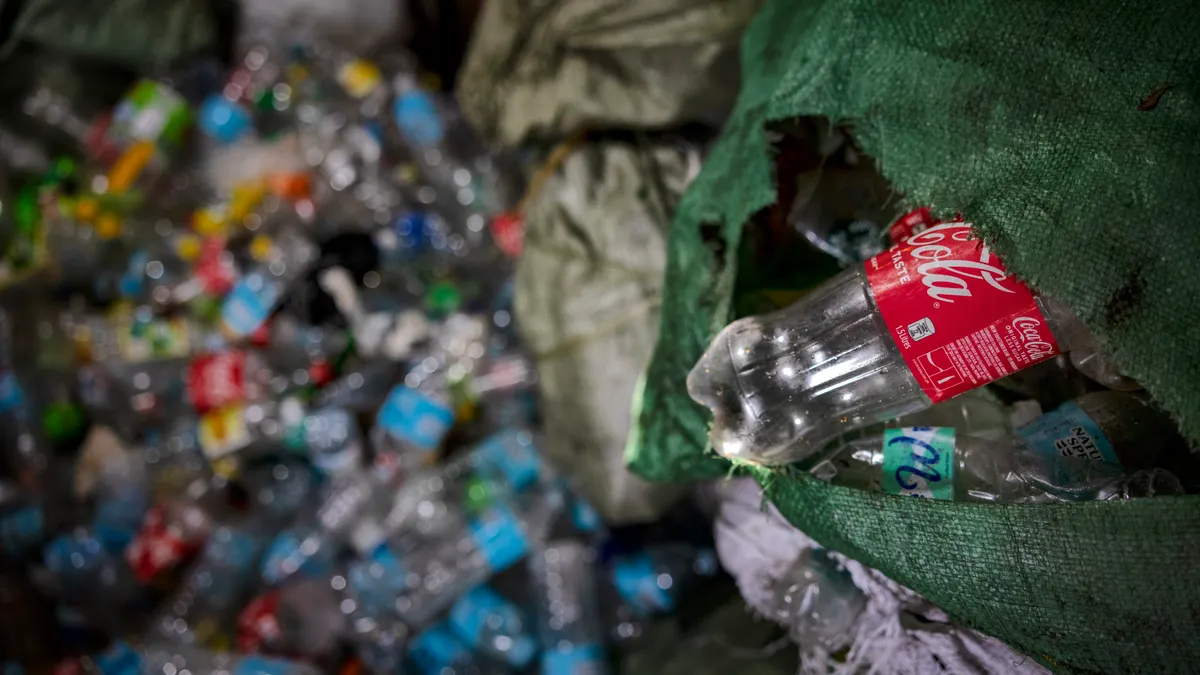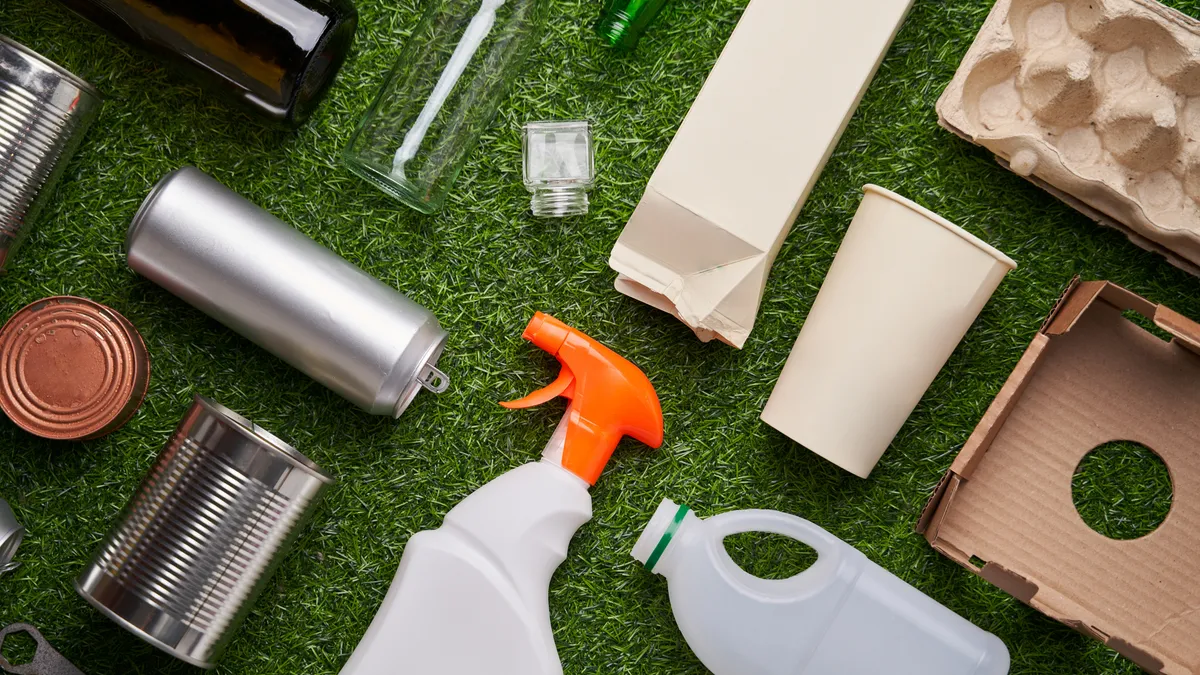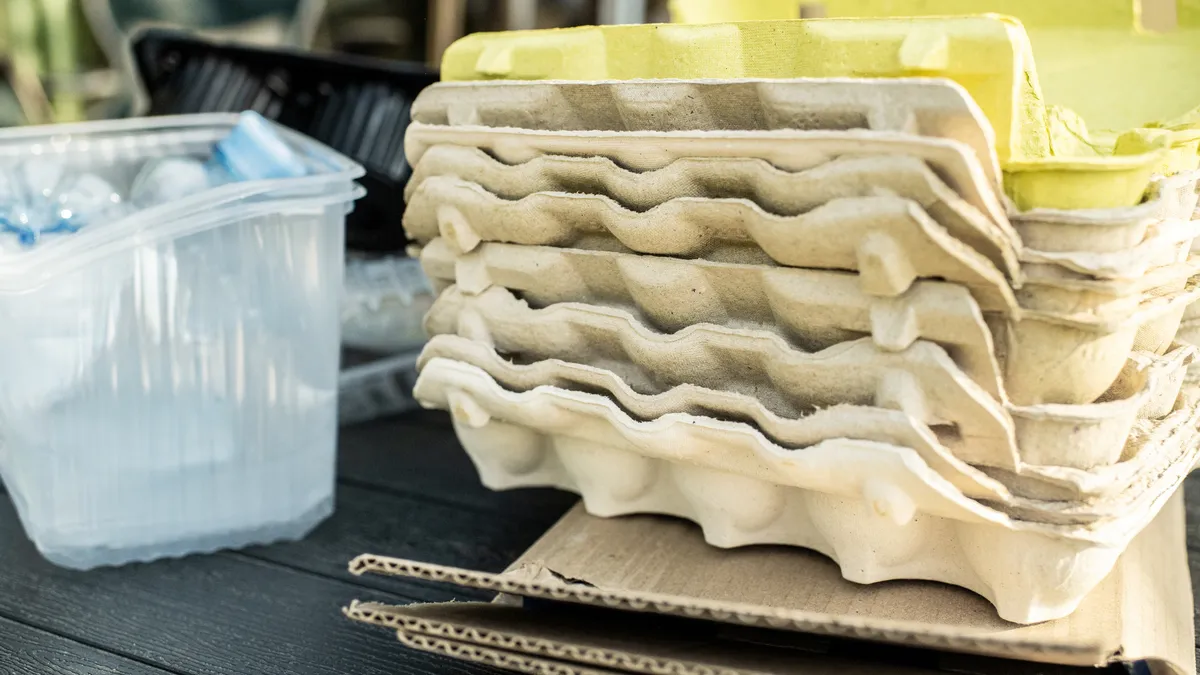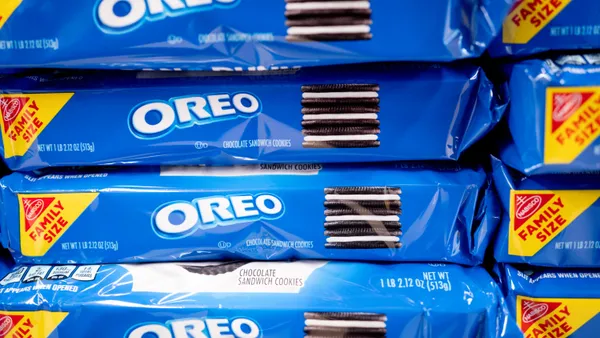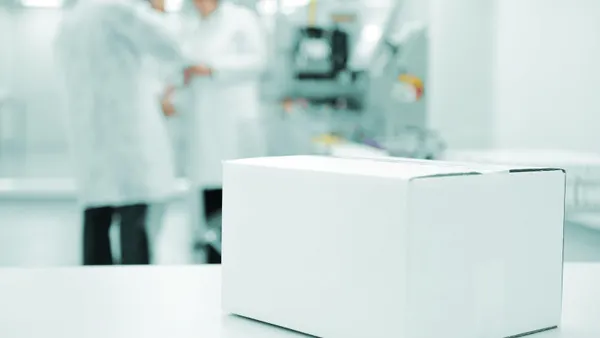Dive Brief:
- As You Sow, a nonprofit that advocates for corporate social responsibility, last week released the latest edition of a report benchmarking brand owners and packaging companies on their ambition and action on preventing plastic packaging pollution.
- Called the Plastic Promises Scorecard, it evaluates 225 companies — with revenue exceeding $1 billion spanning 15 industries — across six areas of action: recyclability, plastic reduction, recycled content, recovery, reuse and extended producer responsibility.
- No companies received a score in the ‘A’ range, and only nine received scores in the ‘B’ range, including Keurig Dr Pepper, The Coca-Cola Co., SC Johnson and Unilever. Among packaging manufacturers, Alpla received the highest overall score — in the C range — supported by stronger scores related to recyclability and EPR.
Dive Insight:
“As we approach 2025, which is the earliest deadline for many of the first set of these plastic packaging-related goals, companies do not appear to be on track to meet them,” said Kelly McBee, circular economy manager at As You Sow, during a virtual event presenting the scorecard report on Wednesday.
The scorecard release came the same week that the US Plastics Pact — a group that had set 2025 plastics reduction and circularity targets with which many consumer brands aligned — updated its strategic plan and shifted the deadline year for some of those goals to 2030.
The 2024 scorecard also comes as packaging EPR is heating up and stakeholders worldwide are working to negotiate a global agreement on plastics, McBee noted.
Of the 225 companies, 147 had timebound, quantifiable recyclability goals; 145 had recycled content goals, half of which specified incorporating recycled content into at least 25% of plastic packaging. Reuse is less common; As You Sow found 43 companies are piloting reuse, but commitments are more focused on investigating reuse than adopting it.
About one-third of companies are “proactively engaging” on EPR, according to As You Sow’s analysis. “Corporations with effective plastic pollution prevention practices should be proactive in advocating for the passage of EPR legislation at the state, regional, and national levels to promote an even playing field and greater certainty in policies,” As You Sow wrote in the report.
Overall scores were based 70% on action and 30% on ambition, organizers explained. So a company that has met its less ambitious goals might ultimately score similarly as a company that has not yet hit its harder-to-reach goals.
Unilever, which scored a B-minus (relative to many peers’ grades in C, D and F range), recently pushed out the target year for some of its own plastic reduction and circularity goals. In an emailed statement, a Unilever spokesperson said: “Reducing our virgin plastic use and developing alternatives for hard-to-recycle flexible plastic packaging, like plastic sachets, remain our priorities.” The company, whose use of recycled plastic across its global portfolio is 22%, says it will “be more focused in allocating our resources” as well as “more systemic in our advocacy to address the enablers and blockers of process outside our direct control.”
Beverage companies Coca-Cola and Keurig Dr Pepper each received B grades. Coca-Cola was deemed more ambitious than KDP, while KDP scored higher on overall action. Coca-Cola was considered stronger in the recyclability, reuse and particularly recovery category “for its laudable goal to collect one bottle or can for each one sold by 2030,” according to the report. Conversely, KDP was considered more advanced on reduction and recycled content.
Asked for comment on the report, Coca-Cola pointed to the company’s World Without Waste strategy and participation with the Ellen MacArthur Foundation and USPP. “We know more must be done, and we can’t achieve our goals alone. Addressing plastic waste and recycling challenges requires collaboration between industry, the public sector and civil society,” according to an email from the company.
The report highlighted SC Johnson, saying it “holds one of the largest virgin plastic reduction goals” and has achieved 28.2% reduction since 2018 toward a goal of 30% by 2025.
Aisha Stenning, global commitment program manager at the Ellen MacArthur Foundation, also spoke during the event about challenges hitting EMF’s goal of making all plastic packaging reusable, recyclable or compostable by 2025.
“Flexible packet plastic packaging, such as sachets, wrappers, and pouches are some of the fastest growing types of plastic packaging, but they're also the most challenging from a waste and pollution perspective, especially in high-leakage markets. So we really need to overcome those,” Stenning said, calling that category “a key reason” why the 100% goal hasn’t been met.
“It's looking like we're we're going to miss the 100% recyclability reusability, and compostability goal,” she said, adding that establishing infrastructure to collect and circulate packaging after use has also been a hurdle.
As You Sow’s recommendations regarding recyclability, plastic reduction and recycled content include:
- Reducing, recycling at scale or eliminating flexible packaging.
- Decoupling plastic use from growth.
- Disclosing units of packaging sold.
- Certifying recycled content.
- Prioritizing postconsumer material over postindustrial content.
- And supporting beverage container deposits boost material availability.



